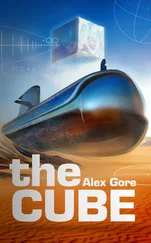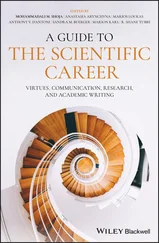George Gore - The Scientific Basis of National Progress, Including that of Morality
Здесь есть возможность читать онлайн «George Gore - The Scientific Basis of National Progress, Including that of Morality» — ознакомительный отрывок электронной книги совершенно бесплатно, а после прочтения отрывка купить полную версию. В некоторых случаях можно слушать аудио, скачать через торрент в формате fb2 и присутствует краткое содержание. Жанр: foreign_antique, foreign_prose, на английском языке. Описание произведения, (предисловие) а так же отзывы посетителей доступны на портале библиотеки ЛибКат.
- Название:The Scientific Basis of National Progress, Including that of Morality
- Автор:
- Жанр:
- Год:неизвестен
- ISBN:нет данных
- Рейтинг книги:3 / 5. Голосов: 1
-
Избранное:Добавить в избранное
- Отзывы:
-
Ваша оценка:
- 60
- 1
- 2
- 3
- 4
- 5
The Scientific Basis of National Progress, Including that of Morality: краткое содержание, описание и аннотация
Предлагаем к чтению аннотацию, описание, краткое содержание или предисловие (зависит от того, что написал сам автор книги «The Scientific Basis of National Progress, Including that of Morality»). Если вы не нашли необходимую информацию о книге — напишите в комментариях, мы постараемся отыскать её.
The Scientific Basis of National Progress, Including that of Morality — читать онлайн ознакомительный отрывок
Ниже представлен текст книги, разбитый по страницам. Система сохранения места последней прочитанной страницы, позволяет с удобством читать онлайн бесплатно книгу «The Scientific Basis of National Progress, Including that of Morality», без необходимости каждый раз заново искать на чём Вы остановились. Поставьте закладку, и сможете в любой момент перейти на страницу, на которой закончили чтение.
Интервал:
Закладка:
A complete account of the growth and development of scientific discoveries and inventions would form an extensive history, and would include numerous instances of experiments attended by results which, sooner or later, affected all mankind. Take that of phosphorus, for example. The first evidence of the existence of that substance was obtained by the Saracens in the eighth century. Achild Bechil distilled a powdered mixture of charcoal, clay, lime, and dried extract of urine, and obtained a substance which shone in the dark "like a good moon;" that substance was phosphorus. The discovery contained in the results of that little dirty and stinking experiment was the germ or seed of all the subsequent developments and applications of phosphorus. About the year 1669 Bechil's experiment was further developed by Brandt, a merchant of Hamburg, and the publication of the wonderful properties of the substance produced a great sensation in his fellow-citizens. "There was then cried nothing but triumph and victory among the chymists. Those good people erected already in their thoughts so many hospitals and poor-houses that no beggar should more molest any man in the streets, made great legacies, and pious causes, and what not else." "Besides, the other alchymists did encourage him yet more, and desisted not to make him believe how this was the same fiery ghost of Moses that in the beginning moved upon the water, yea, his splendid shining face: the fiery pillar in the desert, that secret fire of the altar wherewith Moses burned the golden calf before he strewed it upon the fire and made it potable."
The experiment of Brandt was repeated by Kunckel before the courts of Saxony and Brandenburg, although it was not a very delicate or agreeable exhibition, "because the anctuous and daubing oyliness was not yet accurately separated from it, and without doubt it was very stinking." Brandt's process was further developed by Boyle, and published in the Philosophical Transactions of the Royal Society, in the year 1692-3; and phosphorus was afterwards obtained in larger quantity and in a purer state by Hanckwitz, a chemist in Southampton Street, Strand, and sold by him at three pounds sterling per ounce. Its price at present is less than three shillings per pound.
Margraaf, Fourcroy, Vauquelin, and Dr. Slare also extended our knowledge of the substance; Gahn, in 1769, made the important discovery of phosphorus in bones, and Scheele immediately devised the process now in use by our manufacturers for extracting it from that substance. The commencement of the use of phosphorus for the purpose of getting a light occurred about the year 1803, but it was not until the year 1833 that the invention of phosphorus matches became commercially successful. The use of such matches is now universal, and it has been estimated that the daily consumption of them in Great Britain alone amounts to two hundred and fifty millions, or more than eight matches per day for each individual in the kingdom.
"There is nothing on the Earth so small that it may not produce great things." The most abstract and apparently trivial experiments in original research have in some cases led to inventions and results of national and even world-wide importance. The contractions of a frog's leg in the experiments of Galvani, and the movements of a magnetic needle in those of Oersted, have already led to the expenditure of hundreds of millions of pounds in laying telegraph wires all over the earth, and to an immense extension of international intercourse. But the original experiment of Oersted was not discovered without labour, it was only arrived at after many years of research.
The saying that "all great things have had small beginnings," is true, not only of electric telegraphs, but also of the great trade of electro-plating, and of the magneto-electric machine which is now largely used instead of the voltaic battery. After Volta had made his small and apparently unimportant experiments on the electricity produced by metals and liquids, various persons tried the effect of that electricity upon metallic solutions. Brugnatelli, in 1805, found that two silver medals became gilded in a solution of gold by passing the electricity through them. Mr. Henry Bessemer, in 1834, coated various lead ornaments with copper by using a solution of copper in a similar manner. And in 1836 Mr. De la Rue found that copies might be taken in copper of engraved copper-plates by the electro-depositing process. Faraday discovered magneto-electricity in the year 1831, by rotating a disc of copper between the poles of a magnet, and he has stated that the first successful result he obtained was so small that he could hardly detect it. This simple experiment was the origin of the magneto-electric machine, and many of these machines are now used for producing the electric light, and for depositing nickel, copper, silver, and gold, instead of by the voltaic battery. These, and other engines, thermic, magnetic, electric, &c, will probably, ere long, be constructed on as large a scale, and as many in number, as the present steam engine.
The discovery in olden times of the attractive properties of a fragment of iron ore, was the basis of the invention of the mariner's compass, which greatly improved navigation, and led to nearly all the chief maritime discoveries which have since been made. The sciences of magnetism and geometry form the basis of the art of navigation, and have thus made our great foreign commerce possible. The discovery of magnetism enabled sailing vessels to venture freely out of sight of land, and to traverse the wide ocean with even greater safety than to sail near the shore. By its means Columbus crossed the Atlantic Ocean and discovered America. By its means also, Vasco de Gama sailed round the Cape of Good Hope and discovered a new route to India; and in the year 1500, another Portuguese Captain, Cabral, was driven across the Atlantic, discovered Brazil, and was enabled by the aid of the magnet, to send back a ship to Lisbon with news of the discovery. By its assistance also Magellan discovered Patagonia and the South Pacific Ocean; and by the completion of that voyage the Earth was first circumnavigated and proved to be a globe.
The geographical discoveries of the Portuguese, made by means of the magnet, produced great national results; they profoundly changed the balance of power and wealth among European nations, by changing the direction of navigation and of the great streams of commerce between Europe and the East. They gave a mortal blow to Italy and the cities of the Mediterranean, by transferring Eastern commerce to Spain and Portugal: and Egypt ceased to be the greatest route of commerce from Europe to India.
A singular contract relating to geographical research was made in the fifteenth century, between King Alphonso, of Portugal, and Ferdinand Gomez, of Lisbon, by which the latter engaged to navigate a ship and explore the coast of Africa, and to discover not less than three hundred miles of coast every year, the measurement to be made from Sierra Leone.
Scientific discovery has in all ages been a most powerful agent of civilization and human progress. The discovery of the black liquid which a solution of nutgalls produces when mixed with green vitriol, led to the invention of writing ink; and a knowledge of the properties of ink and paper prepared the way for the invention of printing, by means of which truth and learning have spread all over the earth.
The apparently insignificant property possessed by amber, of attracting feathers immediately after it has been rubbed, was known twenty-four hundred years ago, and afterwards led to the discovery of electricity. In later times, Dr. Franklin, by means of a kite, charged a bottle with lightning, examined it, and proved lightning and electricity to be identical. This knowledge, joined to the further discovery, that electricity would pass freely through metals, led to the modern invention of the lightning conductor, by means of which all our great buildings, ships, lighthouses, arsenals, and powder magazines are protected from lightning.
Читать дальшеИнтервал:
Закладка:
Похожие книги на «The Scientific Basis of National Progress, Including that of Morality»
Представляем Вашему вниманию похожие книги на «The Scientific Basis of National Progress, Including that of Morality» списком для выбора. Мы отобрали схожую по названию и смыслу литературу в надежде предоставить читателям больше вариантов отыскать новые, интересные, ещё непрочитанные произведения.
Обсуждение, отзывы о книге «The Scientific Basis of National Progress, Including that of Morality» и просто собственные мнения читателей. Оставьте ваши комментарии, напишите, что Вы думаете о произведении, его смысле или главных героях. Укажите что конкретно понравилось, а что нет, и почему Вы так считаете.












